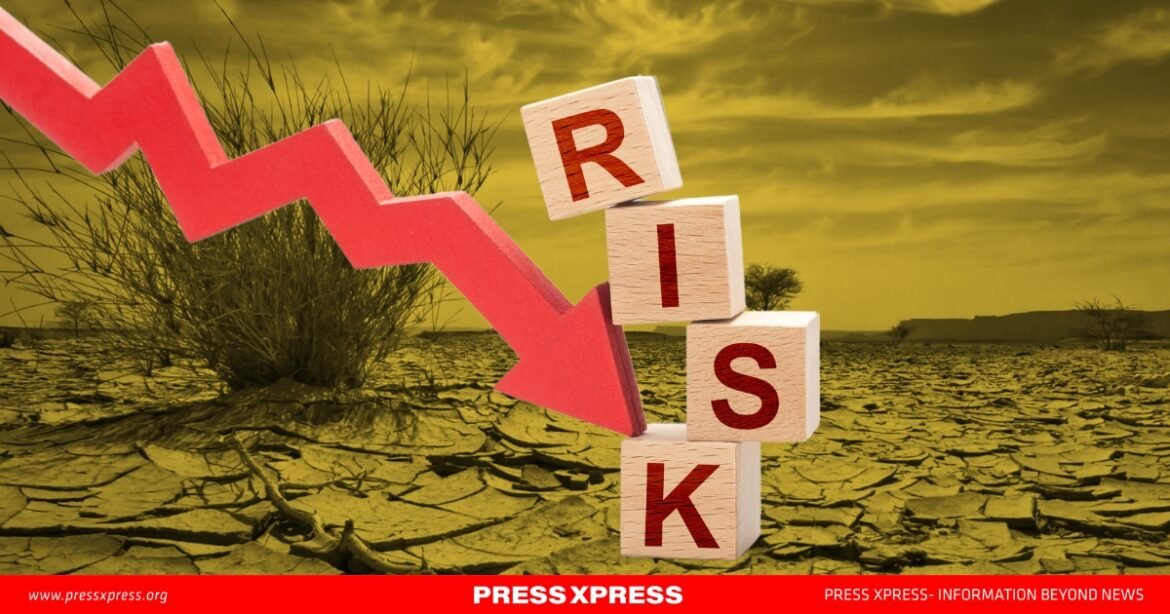Without systemic changes in risk management, decarbonization, and nature restoration, the world faces an unprecedented economic and societal collapse
Climate change is no longer a distant threat but a present and escalating crisis. The Institute and Faculty of Actuaries (IFoA), in collaboration with climate scientists, has issued a stark warning about the potential consequences of inadequate climate policies. Their latest report, “Planetary Solvency – Finding Our Balance with Nature,” paints a grim picture of societal and economic collapse unless immediate action is taken. The global economy, they argue, could face up to a 50% contraction in gross domestic product (GDP) between 2070 and 2090 due to climate-related shocks.
The Severity of Climate Risks
The IFoA report highlights the catastrophic impacts of unchecked climate change, including:
Extreme Weather Events: Fires, floods, heatwaves, and droughts are becoming more frequent and severe, leading to widespread destruction of property, loss of life, and displacement.
Resource Scarcity: Food and water shortages, driven by environmental degradation and extreme weather, are expected to escalate, posing significant national security threats.
Mass Migration and Mortality: Climate-induced stress could trigger involuntary mass migration and large-scale loss of life, with billions of people potentially affected.
Biodiversity and Ecosystem Collapse: The degradation of natural systems that underpin human survival threatens the availability of essential resources such as clean air, water, and raw materials.
At the core of the issue lies the failure of current climate policies to adequately address these risks. Without rapid decarbonization, restoration of natural systems, and immediate policy shifts, the consequences could be irreversible.
Economic Implications: The 50% GDP Contraction

The IFoA’s projection of a 50% contraction in global GDP between 2070 and 2090 underscores the severity of the economic risks. Climate shocks such as extreme weather events and sea-level rise are expected to result in significant destruction of infrastructure and property, leading to massive capital losses.
Additionally, the report warns of sociopolitical fragmentation and the collapse of states under the weight of climate-induced crises, resulting in enduring economic instability. Existing economic models, which underestimate the impact of tipping points and ecosystem failures, further blind policymakers to the real risks of climate inaction, exacerbating the potential for devastating outcomes.
As the lead author Sandy Trust noted, “You can’t have an economy without a society, and a society needs somewhere to live.” The degradation of Earth’s systems could lead to “planetary insolvency,” where the essential services that sustain human life are no longer viable.
Policy Recommendations: A Paradigm Shift
To mitigate these risks, the IFoA report calls for transformative changes in global governance and policymaking:
Annual Planetary Solvency Risk Assessments: Establishing a comprehensive risk assessment framework, housed within global bodies such as the IMF or OECD, to evaluate and report on planetary risks.
Systemic Risk Management: Introducing systemic risk officers at national and international levels to improve preparedness and response.
Accelerated Decarbonization: Immediate implementation of policies to reduce carbon emissions and remove atmospheric carbon.
Nature Restoration: Prioritizing ecosystem repair to enhance resilience and mitigate the impact of climate shocks.
Global Risk Tracking: Developing a dashboard to monitor and evaluate the effectiveness of climate mitigation efforts.
Global Risks in Perspective
The broader context of climate risks was echoed in the World Economic Forum’s Global Risks Report 2025, which identified extreme weather events, biodiversity loss, and geoeconomic confrontation as top global threats. The convergence of environmental, societal, and geopolitical crises underscores the interconnectedness of these challenges.
The Urgency of Action
The IFoA’s dire warning is a clarion call for immediate and decisive action. The potential for a 50% GDP contraction between 2070 and 2090 highlights the inadequacy of current climate policies and the urgent need for a paradigm shift.
Without systemic changes in risk management, decarbonization, and nature restoration, the world faces an unprecedented economic and societal collapse. Political leaders and policymakers must rise to the occasion, prioritizing planetary solvency to secure a sustainable future for generations to come.


